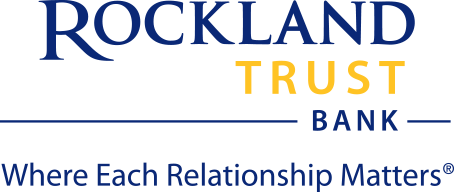No one wants to think about it, but everyone needs to plan for the possibility that they may suddenly become disabled or die. Taking a few steps now can make it much easier for your loved ones to manage your financial affairs when you can't. Here are a few tips to get started.
Build a rainy day fund. "Savings can help you and your family get through difficult times, especially if there's a major health issue or other life event that may result in you earning less income," said Mark Pearce, Director of the FDIC's Division of Depositor and Consumer Protection.
Financial experts generally recommend that you set aside at least three to six months of living expenses to get through a difficult period without having to take out a loan or borrow from retirement savings. "Having even a small amount of money automatically transferred on a regular basis into a federally insured savings account is a great way to gradually build a cushion to help manage unforeseen situations," Pearce added.
Keep a list of your financial accounts and personal documents in one secure place. Ensuring that a loved one responsible for your affairs can easily find a list of your deposit accounts, investments, loans and other assets or obligations will save them time and avoid risks of unnecessary expenses (such as fees associated with certain old, "dormant" accounts). Other paper records that your heirs may need to know where to find include wills, home titles, car titles, bonds and certificates of deposit. But this list can also be valuable to a criminal, so keep it in a secure place that only you and selected others have access to.
Consider the pros and cons of consolidating accounts. Think about how many savings, checking, investment and credit card accounts you have. Then ask yourself if combining multiple accounts could make it easier for your loved ones to identify, monitor and manage those accounts on your behalf. If you plan to consolidate your deposits at one institution, though, make sure the combined funds are within the FDIC's deposit insurance coverage limits. Remember that you can have more than $250,000 in one bank and still be fully insured provided that the money is in different ownership categories — single accounts, joint accounts, retirement accounts and so on. If you need help, call 1-877-ASK-FDIC (1-877-275-3342).
Consult with an attorney about legal documents to create or update. One example may be an advance directive that will specify your wishes for medical care if you are terminally ill. Others may include a will and/or a trust to guide the distribution of your property after your death, and a "power of attorney" authorizing someone else to handle transactions and make decisions on your behalf if you become mentally or physically incapacitated.
Carefully evaluate who you hire to help you. You may want to talk to a
financial advisor for help, such as in deciding whether to consolidate accounts or sell investments. Before choosing an advisor, understand what training he or she has had and any record of complaints. For tips on choosing an investment advisor, including what professional designations (the letters after an advisor's name) mean, start at
www.finra.org/Investors on the Web site of the Financial Industry Regulatory Authority, an independent, not-for-profit organization authorized by Congress to help protect investors.
Determine if you have adequate insurance. Consider discussing with an insurance agent or a financial planner whether you have adequate life and disability insurance, and evaluate the pros and cons of long-term care insurance. Your needs will depend on factors such as whether you have dependents and any property that you would like to pass to an heir but is serving as collateral for a debt. Note: In general, your debts will be paid from your estate and will decrease the money that your heirs could inherit. But exceptions exist. For example, the responsibility to repay any debts that another person co-signed with you shifts to that person after you die.
Take steps to make it easier for your heirs to access your valuables. Start by confirming that the beneficiaries or co-owners you want on accounts are named in the records. For example, having joint accounts with your spouse or another loved one can make it easier for him or her to access the account if you become disabled or die, but you are giving this person equal rights to the money in that account. If your bank offers payable-on-death (POD) accounts, you can set up an account that would ensure that the people you name would have access to the money after you (or any other co-owners) die.
And if you have a safe deposit box, talk to a bank employee or an attorney about how a loved one or another person you designate could access the box. Procedures vary considerably by state. For example, after a death, some state laws may permit a decedent's safe deposit box to be accessed immediately by a co-owner, but other states may generally not permit anyone to remove any items other than a will and burial instructions for several weeks.
To learn more about preparing your finances for a serious life event, start at
www.mymoney.gov.




